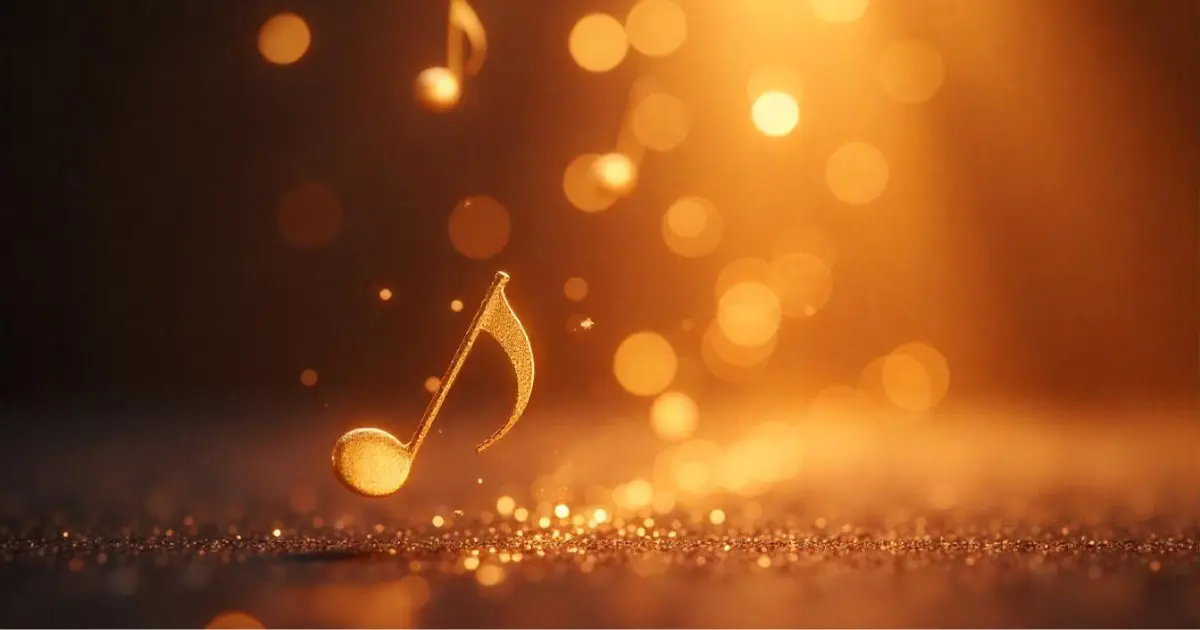Picture This:
A kid in a dim-lit bedroom, cracked phone screen glowing, scrolling through a royalty-free beat archive. He doesn’t need to pay a producer. Doesn’t need to know anyone. Just a few taps, and he’s got a slick, AI-generated instrumental. The track builds itself. He spits over it, uploads it, and in a world where freestyle rap beats can turn anyone into a sensation overnight—boom. He’s an artist now. No studio. No samples. No late-night sessions with a producer fine-tuning the snare. Just digital magic. A revolution. Or the slow death of hip-hop’s soul? Depends who you ask.
The Rise of AI-Generated Beats
How AI Composes Music: From Algorithms to Sound Waves
AI doesn’t need sleep. It doesn’t need inspiration. It doesn’t get stuck on a loop, questioning if a hi-hat pattern is too busy. AI just works—endlessly, effortlessly, generating beats at a speed no human can match. Neural networks trained on decades of hip-hop history can analyze BPMs and song keys, drum patterns, chord progressions, even the warm imperfection of vinyl crackle, and spit out something that sounds just close enough to the real thing.
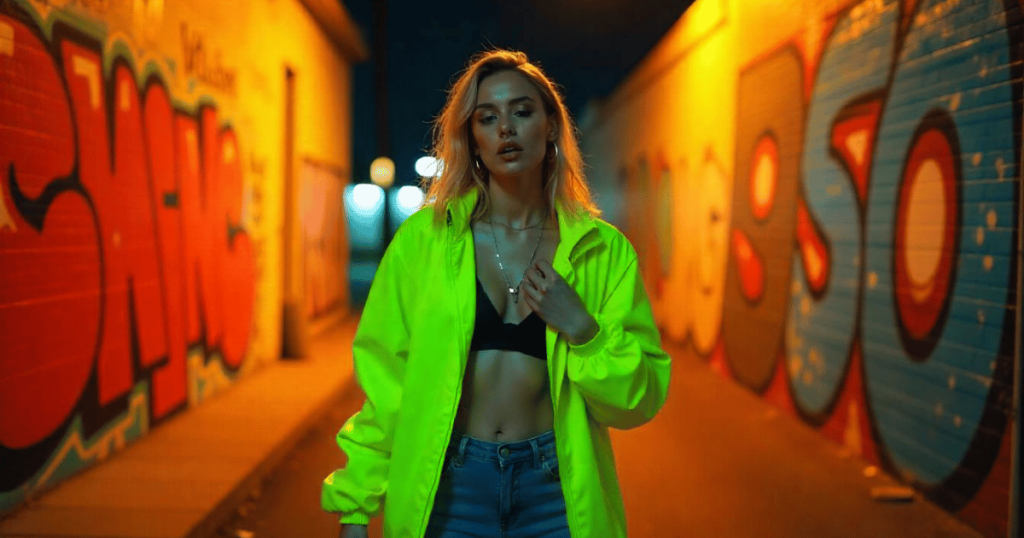
It’s all numbers. A vast dataset of hip-hop beats, underground gems, and forgotten mixtape classics processed, distilled, and reassembled into something new. Or at least, something new enough.
It’s all numbers. A vast dataset of hits, underground gems, and forgotten mixtape classics processed, distilled, and reassembled into something new. Or at least, something new enough. The way AI builds music is more about probability than creativity. It predicts what should come next based on what’s worked before. Which is fascinating—and terrifying. Hip-hop thrives on the unexpected. AI thrives on pattern recognition. What happens when music stops surprising us?
Popular AI Music Tools Used by Producers Today
We’re past the novelty stage. AI isn’t just a gimmick; it’s embedded in the workflow. Tools like OpenAI’s Jukebox, AIVA, and Amper Music aren’t playing around. They’re churning out beats that are polished, usable, and scarily good.
Even mainstream producers are messing with AI. Check out these case studies on how top artists are embracing AI in music production.
Splice and Tracklib? They’re already shifting power away from traditional beatmakers, giving artists plug-and-play production. But AI-assisted platforms like Boomy and Soundraw take it further. Type in a few parameters—genre, mood, tempo—and AI spits out an instrumental in seconds. No crate digging, no MPC finger-drumming, no sleepless nights tweaking a kick drum.
Even mainstream producers are messing with AI. T-Pain’s dabbled in AI-assisted production. Timbaland’s toyed with machine-generated samples. Kanye, ever the futurist, has hinted at using AI to push creative boundaries. And let’s not forget Travis Scott’s entire aesthetic—robotic, psychedelic, AI-adjacent—feels like a preview of where this is headed.
Benefits of AI-Generated Instrumentals for Artists
So let’s be real: AI beats are a cheat code. They make music production easier, cheaper, faster. That’s not a bad thing. For independent artists, AI-generated instrumentals mean no more waiting on producers to send over stems. No more budget constraints. No more legal headaches over sample clearance. Just instant access to a never-ending stream of beats.
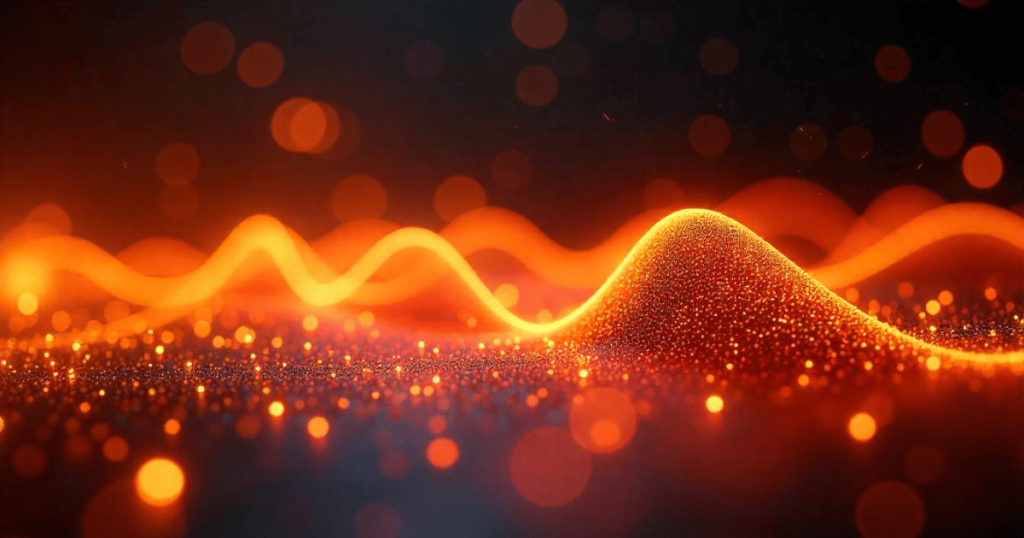
And for the perfectionists? AI is the ultimate co-pilot. It can generate endless variations of a melody until something sticks. It can tweak drum patterns in ways human hands can’t. It can take a half-baked idea and turn it into something radio-ready in minutes. The barrier to entry has never been lower. The possibilities have never been wider.
But there’s always a trade-off. The same ease that empowers new artists threatens the old guard. If beats are free and infinite, what happens to the craft of beat-making? If AI can generate a Metro Boomin-style instrumental in seconds, what happens to Metro Boomin? If the next viral hit is an AI-generated track with an AI-generated rapper, what happens to the human in hip-hop?
Royalty-Free Beats: A Game-Changer for Independent Artists
What Are Royalty-Free Beats?
Once upon a time, if you wanted a fire beat, you had two options: either you knew a producer, or you shelled out serious cash to lease or buy one. But now? Now, beats are everywhere, accessible to anyone with an internet connection and a dream.
Platforms like Splice, Tracklib, and BeatsToRapOn have turned beat-making into an open-source economy. Royalty-free beats are instrumentals that anyone can use, modify, and monetize without paying ongoing royalties or licensing fees. No label politics. No lawyers chasing you down for sample clearance. Just grab a track, record your bars, and drop it.
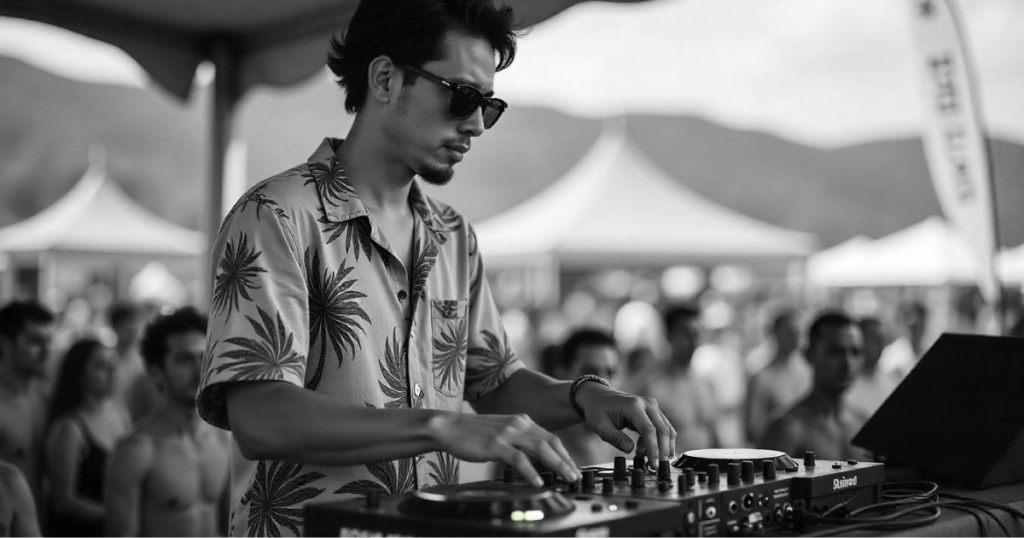
Platforms like Beats To Rap On and Splice have turned beat-making into an open-source economy. You can scroll through thousands of instrumentals, pick one that slaps, and it’s yours. No middlemen. No gatekeepers.
The Financial and Creative Freedom They Provide
Money talks. And for independent artists, it often says “not today.” Studio time, mixing, mastering, promo—it adds up fast. Royalty-free beats slice a huge cost off the budget. Royalty-free beats slice a huge cost off the budget. Artists can release music consistently without bleeding cash every time they drop a song. Want to take your sound to the next level? Use our MP3 Enhancer to clean up your tracks and make them sound studio-polished.
And let’s talk creative control. Labels used to dictate production choices, but now, with an endless catalog of royalty-free instrumentals at their fingertips, artists don’t have to compromise their sound. They can experiment, pivot, and release music at their own pace. You want to drop a track every week? Go for it. No waiting for a producer to send you something. No politics, no permission needed.
Why Major Artists and Labels Are Taking Notice
This isn’t just an underground movement. Major players are clocking the shift. Drake has rapped over beats that started as royalty-free loops. Lil Nas X famously built “Old Town Road” around a sample he bought for a few bucks. Even mainstream producers are incorporating AI-generated and royalty-free elements into their work.
The industry is shifting, and labels know it. That’s why platforms like Tracklib are now partnering with major labels to make royalty-free sample use more structured. They see where the game is headed: a world where artists don’t have to bend over backwards to afford or clear beats. And let’s be real—labels are about making money. If royalty-free beats are the future, they’ll find a way to cash in.
The Algorithm as the New Crate Digging
Hip-hop was built on the art of discovery. Digging through crates, hunting for that perfect, dusty groove, flipping a forgotten sample into gold. That hunger? That ear? That’s what made producers gods. DJ Premier pulling a scratch from some obscure jazz record. Madlib flipping Brazilian psych-funk into a head-nodding loop. Kanye chopping soul until it bled. That was the craft.
Now? AI does the digging. Check out our interview series where artists talk about AI’s role in music production today. The new producers aren’t sweating over drum breaks; they’re scrolling through AI-generated loops, picking something pre-made, maybe tweaking a hi-hat. That’s production now—at least for some.
The machines aren’t just replacing producers, though. They’re making everyone a producer. And that’s where things get messy. Because when everything is possible with zero effort, what happens to taste? To originality? When anyone can generate a beat in seconds, does anyone dig deeper?
The Role of AI in Democratizing Music Production
How AI Levels the Playing Field for Emerging Rappers
The gatekeepers are sweating. Once upon a time, if you wanted your voice to rattle through speakers, you needed studio time, connections, and an engineer who knew their way around an SSL console. Now? A cracked version of FL Studio and a handful of AI-powered tools, and you’re in the game. No budget. No middlemen. Just raw ambition and an internet connection. Want to test your skills? Freestyle over our beats and see where AI can take you.
The old guard won’t admit it, but AI is the new mixtape circuit—except the AI never sleeps. Rappers in Lagos, London, and Atlanta are feeding text into ChatGPT for lyrical inspiration, using AI mastering services to make their rough takes sound studio-polished, and tweaking AI-generated beats that once took seasoned producers hours to craft. There’s something rebellious about it, even if the purists scoff.
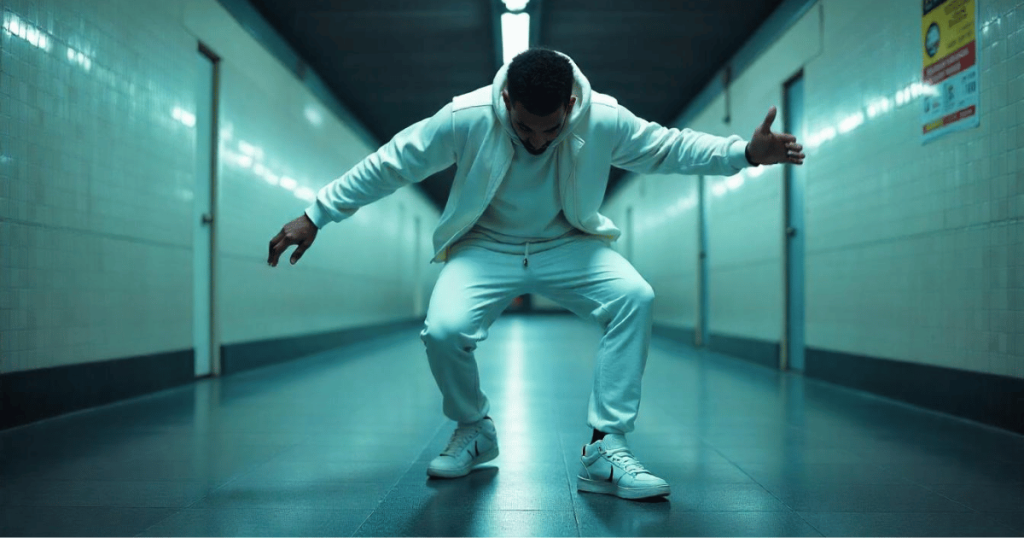
But let’s not pretend it’s all utopian. The DIY come-up is real, but so is the flood of AI-assisted mediocrity. When everyone has access to the same frictionless creation process, does originality survive? Or does hip-hop drown in an endless loop of algorithmically optimized sameness?
AI Tools That Help Artists Create and Distribute Music
Think of it like this: The producer’s crate-digging pilgrimage to dusty record stores has been replaced by a Spotify-trained neural network that spits out drum breaks and chord progressions in seconds.
Some call it sacrilege. Others call it evolution.
Tools like Boomy and Soundraw let artists generate full instrumentals in a few clicks—no theory, no samples, no licensing headaches. YouRap takes a few bars of input and spits out an AI-enhanced verse in your flow. LANDR masters tracks in minutes, spitting out a radio-ready mix without an engineer tweaking levels at 2 AM. And platforms like DistroKid and TuneCore use AI-driven analytics to predict what release strategies will work best.
The machine doesn’t care about your creative process—it just optimizes output.
Which is either terrifying or liberating, depending on your perspective.
The Future of DIY Rap and AI-Enhanced Production
The indie rapper’s biggest hurdle used to be access. Studios cost money. Mixing engineers cost money. Vinyl samples could get your track taken down before it hit 1,000 plays. But AI-powered tools? AI doesn’t gatekeep.
Got an acapella? Split the stems and remix it instantly.
The next wave of rap legends might never step inside a traditional studio. They’ll train their own AI voice models to interpolate hooks in ways that are both alien and eerily human. They’ll generate beats on demand, tweak them on their phone, and upload straight to streaming platforms without touching a DAW. They’ll use AI to test different lyrical styles, generating 10 versions of a verse before settling on the most infectious one.
And labels? Labels will be watching, ready to sign whatever is bubbling up from the algorithmic underbelly.
But hip-hop has always been about reinvention. In the same way that sampling evolved from an art form to a legal battlefield to a mainstream production tool, AI will go through its own growing pains. Will it cheapen the craft? Will it empower the next generation? Will it do both?
Will it cheapen the craft? Join our Monthly Leaderboard and see how real artists are using AI beats to stay ahead.
Hip-hop doesn’t stay still. It adapts, it rejects, it flips the script. AI isn’t here to replace rappers. It’s here to test them. The ones who survive? They’ll be the ones who take the machine’s cold precision and inject it with something the algorithm can’t replicate: soul.
Challenges and Controversies in AI-Generated Music
The Debate Over AI vs. Human Creativity
Hip-hop was built on struggle. On flipping what you had into what you needed. A cracked copy of FL Studio, a dusty stack of vinyl, a borrowed MPC—whatever it took to create something raw, something alive. But what happens when that struggle disappears? What happens when beats don’t come from calloused fingers on drum pads but from lines of code? AI doesn’t sweat over a snare placement. It doesn’t wrestle with a sample until it breathes in just the right way. It just… generates. Instantly.
And that’s where the divide starts.
To some, AI is the ultimate cheat code. No grinding, no learning curve, no need to study the intricacies of Dilla’s swing or the pocket of a Metro Boomin loop. Just type in a vibe—”dark, trappy, aggressive, 140 BPM”—and within seconds, you’ve got a beat. No need to chop samples, tweak hi-hats, or worry about groove. It’s all there, laid out like an assembly line. Efficient? Sure. But is it hip-hop? Is it art?
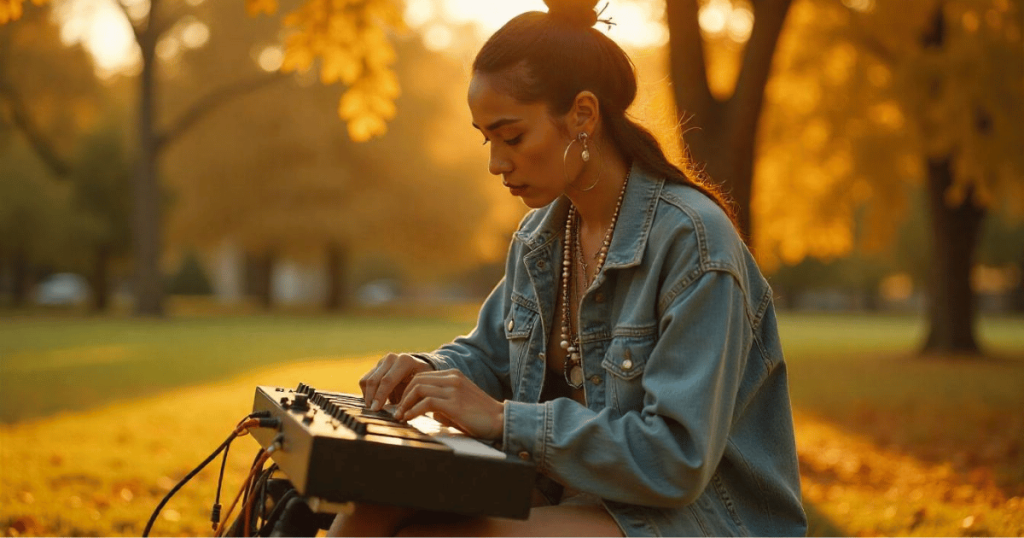
Ask 9th Wonder, RZA, or any producer who spent years developing their ear, and you’ll hear a common frustration: music isn’t supposed to be this easy. The imperfections, the accidental magic of a slightly off-beat hi-hat, the human touch—AI erases all of that. It’s the difference between a jazz pianist riffing off the energy of the room and an auto-generated MIDI file that always lands on the “right” notes but never the real ones.
Then there’s the other side. The ones who don’t see AI as an eraser but as an amplifier. A tool that levels the playing field. No money for studio time? No connections to producers? No problem. AI isn’t replacing creativity, they argue—it’s just shifting who has access to it. Hip-hop has always been about taking what’s available and flipping it into something new. If AI is what’s available, why not use it? After all, wasn’t there a time when people called sampling “cheating” too? AI beats aren’t going anywhere. But are they a blessing or a curse? Read our deep dive into how artists can still stand out in an AI-dominated industry.
And yet, something about it feels… different. Too clean. Too clinical. Too easy.
Copyright Issues and Ethical Concerns in AI Music
We’ve seen this movie before. Napster cracked the industry open. YouTube killed the music video budgets of the ‘90s. Streaming rewired the economics of success. Now, AI is here, and it’s coming for everything—from your favorite producer’s drum patterns to the very concept of originality.
Take the legal mess that’s already bubbling up. AI models trained on decades of music—who owns what? If an algorithm generates a melody that sounds eerily close to a Dilla loop, is that theft? If a producer feeds thousands of Timbaland beats into an AI and spits out an instrumental in the same style, is that inspiration or infringement?
The law hasn’t caught up, but lawsuits are inevitable. Universal Music Group has already sounded the alarms, trying to block AI from scraping their catalog. Meanwhile, independent producers are torn—some seeing AI as a way to flood the market with new sounds, others fearing their work will get swallowed whole, chopped up, and reassembled without credit or compensation.
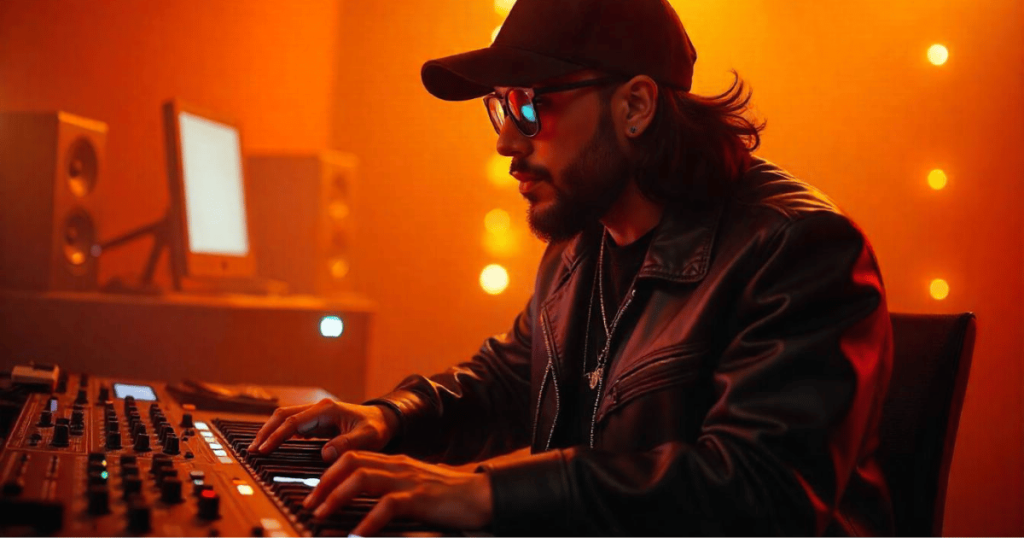
Then there’s the deepfake disaster waiting to happen. AI-generated vocals already exist—what happens when someone releases a full album using an AI-trained model of Kendrick’s voice? What happens when Drake drops a track only to have an AI-generated version of himself respond the next day? We got a taste of this in 2023 with viral AI-generated songs imitating major artists. The industry shut them down, but the tech isn’t going away. The line between real and artificial is blurring fast, and once that Pandora’s box is fully open, it’s not closing.
And let’s not forget the underground scene, where rules barely exist. Ghost production has been around forever, but AI is making it worse. Rappers buying AI beats for pennies instead of paying a producer? Labels using AI to crank out filler tracks to game Spotify’s algorithms? It’s already happening. The real question isn’t if AI will disrupt the industry—it’s how much damage will be done before anyone figures out how to regulate it?
The Impact on Traditional Producers and Beatmakers
Once upon a time, you had to know a producer to get a beat. You had to build that relationship, earn that trust. Even with the rise of platforms like BeatStars, there was still a process—digging through pages of instrumentals, finding that one track that just hit right. But now? AI flips that process on its head. The producer isn’t just optional anymore—they’re almost obsolete.
Imagine being a 17-year-old aspiring rapper in 2025. Why scroll through overpriced beats when you can generate one in seconds? No royalties, no licensing issues, no hassle. AI doesn’t negotiate splits. It doesn’t complain when you use the beat on a mixtape for free. It just delivers.
Producers are feeling the squeeze. Those selling mid-tier beats for $50-$200 are seeing their market evaporate. The ones who survive? They’ll have to adapt. Build brands. Create sounds that AI can’t replicate. The way Metro Boomin made himself essential. The way Madlib’s beats are too human, too felt to ever be replaced.
But what happens to the mid-level producer grinding in anonymity? The ones still developing their sound, trying to carve out a space? AI doesn’t need development. It doesn’t have to struggle. It just creates. And for every producer who figures out how to stay ahead, there’ll be dozens left behind, drowned out by the noise of infinite, AI-generated beats flooding the market.
And that’s the irony—AI is making music easier to make, but harder to stand out in. We’ve entered an era where anyone can have a beat, but originality is more scarce than ever.
So what happens next? Will hip-hop embrace AI the way it did drum machines, samplers, and Auto-Tune? Or will there be a pushback, a renaissance of raw, human-made beats as a rebellion against the artificial?
Hip-hop has always been about reinvention. About taking what’s given and making it yours. AI might be the biggest challenge yet—but if history has taught us anything, it’s that hip-hop never folds. It adapts. It fights back.
And whatever happens next, one thing’s for sure—AI might be able to generate a beat, but it still can’t generate soul.
